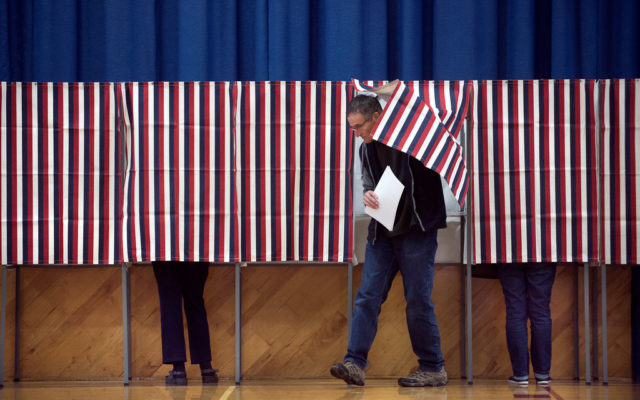
A controversial progressive issue could be Maine’s next high-stakes referendum battle
By Caitlin Andrews, Bangor Daily News Staff
Voters could find themselves in a reignited conversation around bringing universal health care to Maine next year, potentially making the issue a driving factor in the 2022 elections.
The nonprofit organization Maine Healthcare Action is advocating for a ballot question that would direct the Legislature to convene a task force to come up with a bill by 2024 to implement universal health care in the state. The group has until mid-January to collect the roughly 63,000 signatures needed to make the November ballot, a goal organizers say could be within reach as they prepare for an eleventh-hour push.
Should they succeed, the question would serve as a temperature check for Mainers’ desire for a publicly funded health care system. It would be the biggest public vote on health care since voters approved the expansion of MaineCare, the state’s Medicaid program, in 2017 and would have the potential to put in motion a dramatic change in the state’s health care landscape.
The progressive concept has been politically tricky at the national level and has struggled to take root at the state level.
Maine has studied the idea before and backed off because of the complexity and costs it would take to put a universal system in place. A step toward a universal system, Dirigio Health, was discontinued in 2013 after the Affordable Care Act was enacted. Health care advocates say the citizen’s initiative could motivate lawmakers to examine the problems within the system, while detractors said a universal program would drive up costs as the country faces ever-higher insurance premiums.
Lawrence Kaplan, a retired gastroenterologist spearheading the referendum, said the idea of putting together a resolve would be to avoid the high-dollar referendum campaigns that have accompanied universal health care pushes in the past, pointing to scuttled efforts in Colorado, where insurance companies outspent proponents of a universal program by a 5-to-1 margin. He hoped directing the Legislature to consider a bill would create a level playing field where proponents can be heard alongside lobbyists and said the question’s success would send a message to lawmakers.
“What are they going to oppose, providing more comprehensive health care for the state?” Kaplan said of possible referendum opposition, while acknowledging a State House push would also likely generate heavy lobbying.
It all depends on the question getting to voters.
Kaplan declined to say how many signatures the group needs — saying it could discourage supporters — but said Healthcare Action is planning to canvas local craft fairs and is looking to hire professional signature gatherers to meet the required threshold. He said the group is hoping supporters of universal health care will back their efforts if the question makes the ballot.
Maine’s health care landscape has changed dramatically since Dirigo Health’s discontinuation. The expansion of MaineCare in 2019 — delayed initially because of former Gov. Paul LePage’s opposition — was projected to reach around 70,000 people.
It has since cleared that threshold during the coronavirus pandemic, due in part to people losing their employer-provided insurance and federal policies that prevented states from automatically unenrolling people from their programs. The expansion stood at nearly 85,000 enrollees at the beginning of October.
The state has also rolled out its own health insurance marketplace for people seeking coverage under the Affordable Care Act. Those efforts have likely made a dent in the state’s number of uninsured people, believed to be around 8 percent in 2019.
Putting a universal program in place would come with challenges. Dirigo Health folded in part because it was voluntary and the state struggled to find a way to fund it. Vermont abandoned its own universal program in 2014 amid funding problems. Robert Foley, a former Republican state senator and a participant in a 2018 task force dedicated to finding paths to get more Mainers insured, said any proposal in Maine would likely face the same challenges.
He pointed to the challenges with Medicaid reimbursement rates, which providers have said for years are too low and contribute to the workforce shortage the state is currently facing.
“I don’t see how the state could afford a massive system when the current one is underpaid right now,” Foley said.
But Ann Woloson, the executive director of Consumers for Affordable Health Care, said the question could force lawmakers to reckon with problems within the health care system, such as prescription drug prices, and find ways to solve them, even if a universal program does not come to pass.
“The policy goal of doing whatever we can to try and make health care affordable is a good one,” she said.